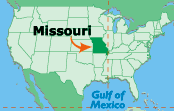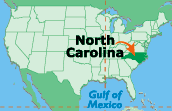(Missouri is the fourth in our series of featured IFPS programs. See more at State Profiles.)
1.How long has your state offered IFPS? Share about the history of IFPS in your state.
| IFPS State Administrator: The first family preservation service program began in Missouri in 1997. The first IFPS project began in 1988 with the primary focus on abused and neglected children in imminent risk of removal. In 1989, four additional projects began providing services, including multiple county projects in both rural and urban county areas. By October of 1995, IFPS programs were operating in 35 project sites covering all of Missouri’s 115 counties, and the City of St. Louis. The name of the program was changed to Intensive In-Home Services (IIS) in 1998. Today, IIS services are available to all 45 circuits within the State of Missouri. |
IFPS Provider: Gillis began providing Family Preservation Services/IIS in Jackson County in 1991 with five In-Home Specialists. We worked in partnership with the Children’s Division Services and The Children’s Place to provide short-term Intensive In-Home crisis services to families with one or more children at risk of removal. During this time we have provided support to the Children’s Division in efforts to educate the community and referral sources regarding the program. In 1997, when The Children’s Place relinquished their contract, Gillis added five Specialists and one and a half supervisors to their staff. In 1998 the Children’s Division changed the program name to Intensive In-Home Service and Gillis was awarded that contract. Gillis has maintained the IIS Jackson County contract and was awarded the most recent contract in 2012 for 12 IIS Specialists. |
2. Why does your state/agency offer IFPS?
| IFPS State Administrator: IFPS has helped reduce the number of children who enter out of home care by keeping kids safely at home. In fiscal year 2013, 77.1% of children receiving IFPS services avoided out of home care. This allows children to remain safely with their families and allows staff to have smaller caseloads. In addition, families who have had IFPS intervention are less likely to have their children come into care up to 12 months after intervention than a family at risk who did not have IFPS intervention. IFPS has also drastically reduced the occurrence of child abuse and neglect during IFPS intervention and at 3, 6, and 12 months after intervention. The program has helped to save a substantial amount of money. The cost of the IFPS program is minimal compared to the direct cost and staff time incurred by the Children’s Division. |
IFPS Provider: To help children remain safely with their families and to prevent them from going into the foster care system. We also believe that all families have the ability to make change. We love preventative programs! |
3. What qualities do you want to see in providers of IFPS, both at the agency and at the therapist level?
| IFPS State Administrator: The provider must have an overriding goal of protection of children through the enhancement of family capabilities. Safety of all family members is the concern of Intensive In-home Services; however, safety of the child is the primary consideration. The provider’s services must focus on assisting in crisis management and restoring the family to an acceptable level of functioning.The therapist shall provide services designed to keep children safe from abuse and neglect and improve family permanency. |
IFPS Provider: We look for someone who is compassionate, hopeful, caring, strength-based, non-judgmental, and flexible. The person must have the ability to be assertive, with solid engagement skills, and a belief that families have the ability to change, We look for therapists who can teach others, with crisis management, and have the ability to understand the importance of self-care. |
4. What qualities do you look for in an IFPS therapist?
| IFPS State Administrator: Families have problem-solving and other life skills, focusing on assisting in crisis management and the specific issues placing the child at risk of removal from their home. In addition, the IFPS program helps families establish linkages with formal and informal community services. |
IFPS Provider: We see families who are more hopeful about their family unit and their future, have fewer feelings of stress, more organized households, better communication skills, better use of appropriate discipline, utilize supports/supportive services, better understanding of their children’s needs, and children are now in an environment that is healthier and safer. |
5. How do you measure success of IFPS services? How successful are IFPS services in your state?
| IFPS State Administrator: The overarching goal of IIS is to protect children through the enhancement of family capabilities. As a result, the agency tracks the number of substantiated reports three months following the IIS intervention. According to the IIS contract, 85% of families who have received IIS intervention shall not have confirmed child abuse/neglect within the first three months following the completion of IIS intervention. For the last three years, contractors and state staff have exceeded this requirement with only .12% having a substantiated report within 3 months for SFY10 and SFY11, and .06% for SFY13. This data demonstrates success of the program mission to protect children from abuse and neglect. The data also supports the efficacy of the program to teach families skills to improve family functioning and allow them to remain intact. |
IFPS Provider: Self-reports from our families, feedback from CD worker, observations of positive change, skills taught being put to use, decreased risk factors /, family has increased resources/supports, intact families at our 3-, 6-, and 12-month follow-ups, and no more substantiated hotline reports. |
6. What advice and resources can you share with other states that want to establish a strong IFPS program?
| IFPS State Administrator: I would encourage states to develop an IFPS program. The program has proven effective in preventing children from entering foster care. Missouri is willing to share information regarding our model, lessons learned, and data which may be beneficial to states interested in developing an IFPS program. |
IFPS Provider: Get to know the local community resources, network, partner with Children’s Division, get to know resources within your own agency to help families, , be strengths-based. Remember your supervisor and your co-workers are there to be a support, and remember self-care…this can be a stressful position. |
Contacts:
IFPS State Administrator
Crystal Wilson (E-mail: Crystal.L.Wilson@dss.mo.gov)
Program Development Specialist
Children’s Division – Central Office
IFPS Provider
Rachel Hodson
Director of In-Home Services
Gillis
_______________
Posted by Priscilla Martens, Executive Director, National Family Preservation Network


